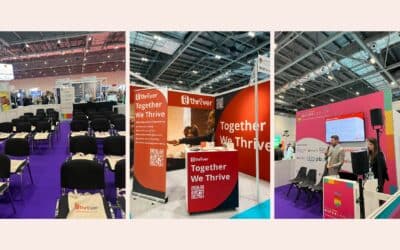Hands Free chosen to develop accessible features for the E5.9m EU funded BEACONING Project
BEACONING is a E5.9m EU funded project through the H2020 Research and Innovation Programme.
The project involving 15 organisations from throughout Europe is to use gamification to enhance learning for 15-24 year olds, particularly in the STEM (Science, Technology, Engineering & Maths) subjects and will run until 31st December 2018.
The main aims are to help students learn the STEM subjects through the use of games, by making the learning fun, interactive and engaging so that learning becomes a by-product of the games and at the same time encourages a wider range of students to study these subjects.
Hands Frees role in this is to ensure that all aspects of the games are accessible to students with a wide range of disabilities at minimal cost to enable it to be able to be used by the widest possible range of people. Within this we’ll be looking at not only making the games accessible to students but also for teachers and the parents of the students.
The output of this project will have a significant impact on the way these subjects will be taught in the future and will enable students with a wider range of learning styles and disabilities to be able to participate in the learning of these subjects and subsequently go on to work in this sphere.
CEO Lawrence Howard says:
“Working with such an esteemed group of people from both academia and industry is such an honour. Within the 15 organisations there are over 100 people working on this project with such a broad range of knowledge and experience to draw on. This is such an exciting environment to be working in and will transform the way people learn”
Dr. Sylvester Arnab, Reader in Games Science, the coordinator of the BEACONING project commented:
“The BEACONING project will exploit relevant techniques and technologies and innovate the way learning is facilitated. By using a gamified approach, we aim to inject the power of play that will encapsulate formal, informal, non-formal and social learning experiences within a contextualised narrative. This opens up opportunities for us to redefine and reconstruct learning in a hybrid learning space.”



